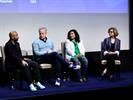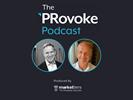Holmes Report 05 Jul 2012 // 11:00PM GMT
Javier Sanchez is VP of marketing for Coca-Cola Latin America. The Mexico City-based marketer recently led the launch of the Coca-Cola Innovation Lab, which promises to bring a more collaborative mentality to the beverage giant’s engagement efforts. Two concrete examples of this approach are video channel Coca-Cola.tv and radio station Coca-Cola.fm, each of which brings users a combination of owned, third-party and user-generated content, using the company’s entertainment assets to develop its own editorial platform.
At the recent Cannes Lions festival, Sanchez sat down with the Holmes Report to discuss how crisis has helped shape Coca-Cola’s marketing mentality in Latin America, whether the PR industry is equipped to help marketers amid so much change.
What is the thinking behind the Coca-Cola Innovation Lab, and the spirit of collaboration that you are trying to implement?
All of a sudden, consumers have got loudspeakers that are powerful. On top of that, simultaneously, people have dramatic control of media and content - how they want to listen to it and where they want to listen to it. Especially younger people. Yesterday’s marketing is creative communism. You produce something, then you air and the people buy your product. We’re moving to creative Darwinism. With this idea, we want to move from specific pieces of creative, to generate content and then stream that content to the different channels.
How hard is the shift to these types of marketing activities?
The shift I’m making in Latin America is not radical. I’m using 10 percent of my budget. When you look at it, it may look like entertainment. We are crafting brand values and we’re making the brand values go to consumers through stories and messages, so we can make people fall in love with the brand. Entertainment is just the body shape. What is really powerful are the values that are embedded, which are positive human values. The essence is about human motivation.
How have you changed how you think about marketing?
Quite dramatically. It’s the same change that engineers had in the 80s and 90s - as drastic if not bigger, and definitely faster. You need to move from borrowing content to generating content. It doesn’t have to be content generated by yourself, but could be generated by your consumers. Ultimately its about creating content that people want to distribute themselves. Only the fittest and most adaptable marketing will survive.
People can also make their criticism of brands much more easily heard. How do you deal with that?
We divide our consumers into five different categories: strong supporters, slight supporters, neutral, slight opposers, and strong opposers. If you want to disseminate your marketing, the first thing you have to do is talk to the strong supporters. We give them a window of 2-3 weeks before the campaign - they get it, comment and then disseminate it. A little bit later you automatically get the strong opposers. People saying bad things about the company, many of which are not true. We typically do not respond. We let the strong supporters respond for us, which is a far more powerful way of doing that. And we are always open about who we are. Usually it works.
In your Innovation Lab announcement you mentioned that that Coca-Cola has found positive opportunities in moments of crisis in Latin America. What does this mean?
Coca-Cola is about optimism and about happiness. It’s about positive values so they can have richer values. In crisis times, human values get shaken - insecurity about the future, being afraid of speaking freely, of walking in the streets with enough security. What we do is remind people that the good guys are more than the bad guys. The positive values are still there and they have to look at the world in positive eyes.
How important is media that isn’t paid for, in your marketing plans?
Huge and even more in the future. The world will move to earned media and owned media. And media companies need to find new ways of explaining and spreading brand messages without the ability of interruption. Unless media companies are able to do that, the investments will become smaller and smaller. I think they will be able to adapt but they will need to catch up. Earned media is definitely part of the future, and that will become a competitive advantage for big companies. Because big companies will have a typically large user base with a higher base of strong supporters - that is invaluable.
Don’t you feel that smaller companies respond better in social media though?
It is true, because they get rid of all bureaucracy. A few years ago, during the horrible earthquake of Haiti, I stopped advertising in Latin America at once. We create a piece of work that said today the Coca-Cola Company is stopping advertising in Latin America. With the money we are saving we are going to make donations. At that point we were acting as a nimble and small company - very untypical. If you don’t, the chances you make the wrong decisions are huge, and then you pay in a humungous way.
Is the PR industry in Latin America responding well enough to these changes?
If a PR agency or campaign can help me get rid of my strong detractors, I will be happy. The fact that you have strong detractors means that something could be working better. There is still plenty of opportunity. Strong detractors are there and PR has a job to convince them of other views. We as an industry don’t think we are able to do that. Big MNCs have negative PR - and PR has to catch up on that - faster, better, more effective with stronger arguments. There is a lot of room for improvement.


































.jpg)































